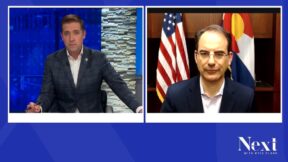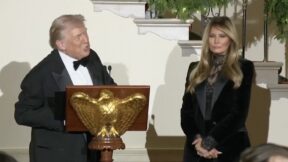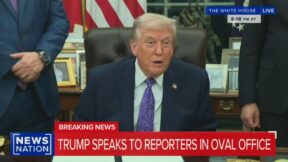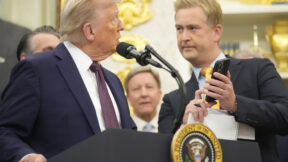Wikileaks Founder Julian Assange Makes First Public Address Since Being Freed: ‘I Pled Guilty to Journalism’
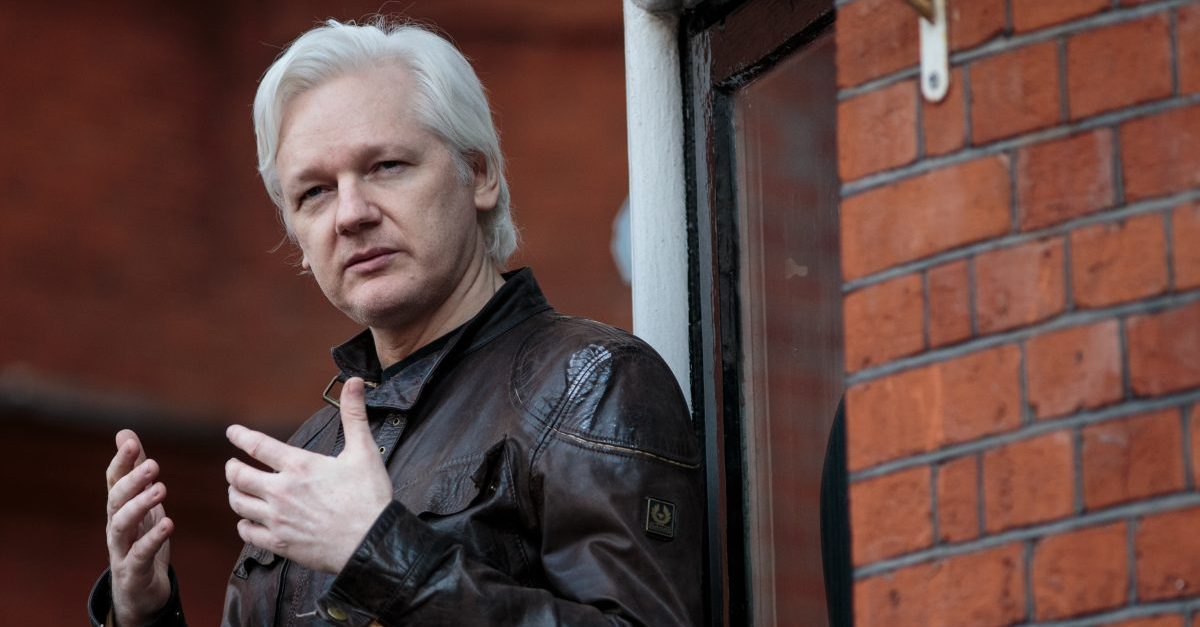
(Julian Assange via Jack Taylor/Getty Images)
Wikileaks founder Julian Assange issued a sharp critique of global press freedom in his first public statement since he was released from prison, saying he was forced to “choose freedom over an unrealizable justice.”
Speaking to the Parliamentary Assembly of the Council of Europe’s human rights committee on Tuesday, Assange reflected on his decision to take a plea deal with the U.S. government earlier this year, ending his nearly decade-long legal struggle to avoid extradition.
Assange had been incarcerated in Belmarsh Prison in London since 2019, after he was arrested by British police at the Ecuadorian Embassy, where he had been seeking asylum since 2012.
On Tuesday, he told officials, “I am not free today because the system is working. I am free today [after] years of incarceration because I pled guilty to journalism… I pled guilty to informing the public.”
His decision to accept the deal, Assange said, stemmed from the painful realization that the protections he believed should shield him as a journalist “only existed on paper” and were not effective in any “remotely reasonable time.” The plea deal, however, has barred him from taking further legal action, preventing him from filing a case at the European Court of Human Rights or submitting a “Freedom of Information Act request” related to his extradition case.
In his address, Assange didn’t just speak about his own plight but used the platform to warn of a growing crisis for press freedom worldwide: “I see more impunity, more secrecy, more retaliation for telling the truth, and more self-censorship.”
Assange expressed hope that his testimony could shine a light on the failings of current legal safeguards and help those who face similar challenges, but remain largely invisible to the public eye.
Read his statement in full below:
Justice for me is now precluded, as the US government insisted, in writing into its plea agreement that I cannot file a case at the European court of human rights or even a Freedom of Information Act request over what it did to me as a result of its expedition request.
I want to be totally clear: I am not free today because the system worked. I am free today [after] years of incarceration because I pled guilty to journalism. I pled guilty to seeking information from a source. I pled guilty to obtaining information from a source, and I pled guilty to informing the public what that information was.
I did not plead guilty to anything else. I hope my testimony today can serve to highlight the weakness, the weaknesses of the existing safeguards, and to help those whose cases are less visible, but who are equally vulnerable.
